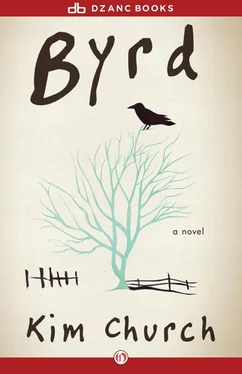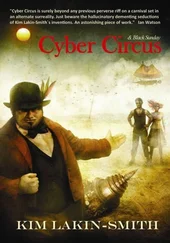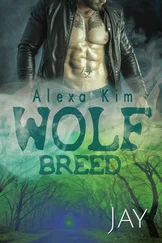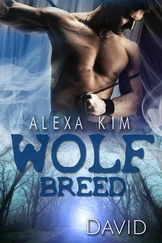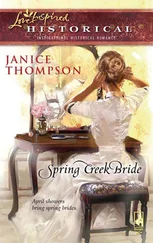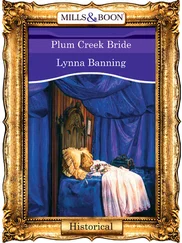The Rhodes house is in Country Club Hills, a brick house with green trim — not grimy-schoolroom green like Shelia’s, but a clean, pale, yellow-green Roland’s mother calls celery. Everything inside, too, is celery — walls, carpets, countertops, vinyl floors.
“Roland’s in the basement,” Pet says, and leads Addie to the stairs.
What Pet calls the basement is actually a giant sun-filled room with sliding glass doors that open onto a patio. There’s a wet bar and a fireplace and a TV and a console stereo and all the furniture you can think of, plus Roland’s guitar and amplifier, and still so much empty space you could turn a cartwheel across the floor.
“You came,” Roland says. “I didn’t know if you would.”
He puts on the Allman Brothers, At Fillmore East , and plugs in his guitar. This is how he practices, playing along on “Whipping Post” using Pet’s brown glass Valium bottle as a slide. He sits on a bar stool, bent over, his dark bangs hiding his eyes, as if he has to go to some secret place to find the song. He plays fast, putting in lots of extra notes, filling every space with sound.
Addie slips off her shoes, draws up her knees, and basks in the moment — sun slanting in, the plush celery armchair, Roland playing for her. A moment as unlikely as it is perfect.
It’s a long moment. “Whipping Post” is a twenty-two-minute jam, all of side four. When the song ends, the tone-arm on the stereo retracts, and Addie applauds. “You’re amazing,” she tells him. She feels like a Beat woman, except Roland really is amazing, worthy of applause.
He sets his guitar in its stand. “Too much, wasn’t it? I got a little carried away. I’m not used to an audience. I need a cigarette.”
She follows him out onto the patio, into the yard, to a shady spot behind a tall row of boxwoods. He lights a Camel, takes a drag and passes it to her.
“Who do you listen to?” he says, casually exhaling a plume of purple smoke, as if the question were casual, which Addie knows it is not.
She wants to say the right thing. She could humor him and say Dylan or the Stones or Howlin’ Wolf. None of those would be a lie. She could be ingratiating and obvious and say the All-mans. “Joni Mitchell,” she says.
“Right,” he says, “of course,” and laughs.
“She’s a genius.”
“She’s got that fluttery voice. It gets on my nerves.”
They finish their cigarette and go back inside and Roland starts the song again from the top. This time he relaxes into it, holding notes, bending them. He turns up the distortion on his amp to get a bluesier sound, more like Duane. That raw, run-down, lied-to sound.
Addie closes her eyes. The less he tries to impress her, the better he plays.
He’s almost at the end — it’s all double-stops and chords now, loud, wailing, building to the full-on heartbreak of the final chorus — when they hear a pounding overhead.
Pet.
“Roland,” she calls from the top of the stairs, “you have homework.”
He stops abruptly, without protest, without complaint, as if he’d been expecting the interruption. He turns off his amp, takes off his guitar, wipes the neck with a chamois cloth, then lays it gently in its case, the way you’d put a child to bed. He turns off the stereo, lifts his album by its edges and slides it into its cover.
“I like listening to you,” Addie says.
“I like playing for you,” he says. “You and me, we’re not like everybody else.”
That night she lies awake in her blue bedroom with her headphones on, listening to Joni, whose high, sad voice drowns out everything. She tries to imagine being Joni — brilliant, beautiful, always in and out of love, able to write and sing and paint about it. Joni even has her own music company, Siquomb, a word she made up, an acronym for “She Is Queen Undisputedly of Mind Beauty.” Addie tries to imagine herself as queen undisputedly of anything.
Flower Street is quiet. Every now and then a car drives by, flashing its headlights through the dotted swiss curtains. Addie imagines it’s Roland coming for her in his father’s Buick. She imagines him parking along the curb, lighting a cigarette, waiting. There’s no time to get dressed. She will slip out in her nightgown, run barefoot across the grass. Her feet will get wet from dew. She won’t be able to see his face in the dark, only the glowing orange tip of his cigarette. He’ll push open the passenger door and say to her, Come on, let’s drive to the lake . And they will, they’ll drive to Old City Lake and park near the dam, and the night will be spacious and peaceful with only the lapping of the water, and she’ll lean against him and point at the trees on the far bank and say, Look, lightning bugs .
“I love how you’re not afraid to speak up,” Roland says. They’re at the wall, sharing a smoke between classes. “I love all the shit you know. How do you know so much?”
“I read,” she says.
“I don’t. The only book I’ve ever read start to finish is On the Road.”
“Too bad you didn’t pick a better one,” she says.
His laugh is like a dry cough. Huck-huck-huck . Self-conscious, like he’s laughing at the sound of himself laughing. “I had a head injury when I was young. My brain hurts when I read.” He tells her the swimming pool story. He tells it as if he’s letting her in on a secret he’s never told anyone, and she pretends she’s hearing it for the first time.
“Music is how my brain works,” he says. “Ever since I hit my head, the only way I can think is in music. Which is cool when you’re playing guitar, but not when you’re not.”
“Most people would kill to play like you.”
“I just wish I knew how to do anything else,” he says.
She reaches over and touches his hand. If she were a Beat woman, this is when she might kiss him. Not a real kiss, no big deal. Lips lightly brushing lips. A suggestion of a kiss.
“I love how he lets me hear his mistakes,” Addie tells Shelia. This is the first time they’ve played cards since she started spending afternoons at Roland’s.
Shelia plays the ten of spades. “You’re such a groupie.”
“Girls, hush,” Betsy says. She is frying fruit pies and watching the Watergate hearings on the little TV she has moved into the kitchen. Watergate is Betsy’s soap opera. She knows all the characters. Her heroes are Senator Sam from North Carolina, with the gavel and the eyebrows and the deep drawl, and Howard Baker from Tennessee. Two Southern gentlemen politely bringing down the government.
“I don’t get it,” Shelia whispers. “It’s not like he’s Eric Clapton.”
“He’s good,” Addie says, “but that’s not the point.”
On TV, Senator Sam bangs his gavel. Betsy turns off the frying pan. The kitchen smells like apples and brown sugar and grease. “Shelia,” she says, “take a dollar out of my purse and you and Addie take my car to the Winn-Dixie and pick up a carton of ice cream to go with our turnovers. Vanilla or butter pecan, you girls decide.”
A Saturday like every Saturday. Bryce is up early for his golf game, which means the whole house is awake. Addie pads into the kitchen, where Claree is serving Bryce’s breakfast: scrambled eggs, soft, with a dash of Tabasco. She sets his plate on the table, and his coffee. She watches him butter his toast like it’s his dying act. Addie knows what she’s thinking: this is the last time today they will see him sober.
Sam comes in and pours himself a bowl of Lucky Charms, carries it to the living room, sits down on the floor in front of the TV and turns on Road Runner cartoons. He’s wearing his idea of a golf outfit: knit shirt, khaki shorts with long pockets for collecting golf balls, Hush Puppies, and white socks with red rings around the top. He has worn a spot on the carpet from camping by the front door. He studies the TV screen, his face bright, hopeful, his whole body tense, as if maybe Wile E. Coyote’s latest Acme device will be the one that finally works; maybe this time he’ll trap the Road Runner. Sam is so intent, he seems not to notice when Bryce comes through the room. Bryce has to step over him on his way out. “So long, buddy.”
Читать дальше
